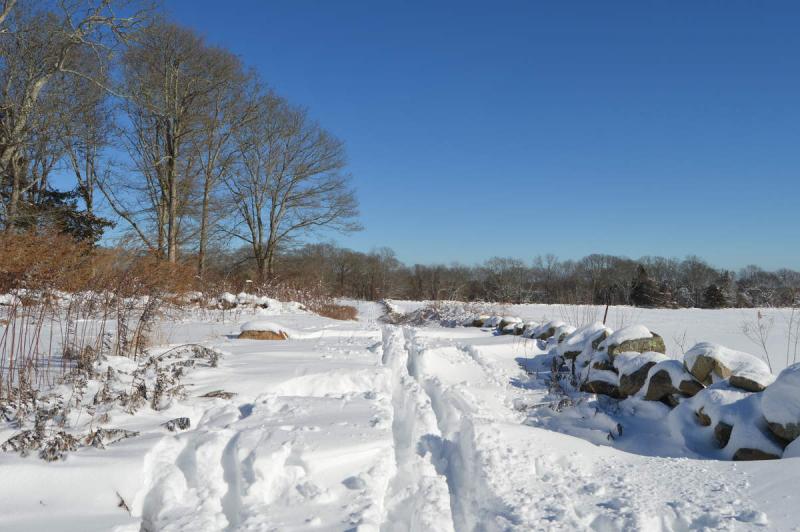10 Pro tips for staying safe this winter
As temps drop, roads ice over, and you find yourself hunkered down inside, make sure you follow these 10 professional tips for staying safe this winter.
1. Bring a coat.
It seems obvious, but many people ditch the coat when running from the house to the car, and from car to the grocery store, said Board of Health Director Chris Michaud.
"We don't intend on breaking down or getting stuck in the snow. Bring a coat," he said, just in case you find yourself in a sticky situation with no access to heat.
2. Inspect your heating system.
Flues, chimneys, wood stoves, boilers, furnaces. Make sure they are clean and functioning properly to avoid potential house fires, said District No. 3 Fire Chief Richard Arruda.
"We get a lot of backfires this time of year. Make sure oil furnaces are serviced," he added.
3. Ditch the portable heater.
Kerosene-fueled heaters are designed for heating open areas, and portable heaters shouldn't serve as your heat source either, said Michaud.
"Those are not meant for heating homes. They can tip over," he said.
4. Be a good neighbor.
If you have an elderly neighbor, don't hesitate to check on them when the weather's cold.
"Knock on their door. See how they're doing. Invite them over to warm up. Look at their complexion," said Michaud.
5. Test your smoke alarms.
Working smoke alarms and carbon monoxide testers are crucial this time of year, when windows are shut tight and the heat is turned up. Test your devices, install fresh batteries, and call your local fire department if you have any questions, said Arruda.
6. Avoid strenuous activity.
Strenuous activities — such as moving firewood and shoveling snow — can aggravate certain health conditions, said Michaud.
If you must go outside, he suggested covering up — gloves, hat, jacket — and let someone know where you're going.
7. Wait to go ice skating.
"When [ice] first forms at the beginning of the year, it's not really safe," said Arruda, explaining that the ice isn't thick enough at the beginning of the season when warmer days melt it. The same applies toward the end of the winter season.
"The children need to be checking with their parents before going out onto the ice," he said. Parents need to look for an okay from the fire marshall, he said.
8. Bring your pets inside.
It's self-explanatory; their paws get cold too. If you have a stray in the neighborhood, lay out straw or hay, or build a small dog house to keep them up off the cold ground, Michaud suggested.
9. Drive carefully.
Distracted driving is already a dangerous habit, but when the roads get icy and snow builds up on the roadsides, focus is crucial, said Arruda, who responds to emergency calls regularly.
"Keep your eyes on the road. No distractions," he said.
10. Tend to your Christmas tree.
Dry trees make for awesome fire fuel.
"Make sure [your Christmas trees] have water in them," said Arruda. If you notice your tree has dried out, avoid proximity with candles and lighters.













